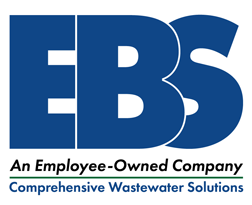Testing for different categories of compounds in wastewater—such as readily biodegradable, slowly biodegradable, recalcitrant, and toxic compounds is crucial for several reasons related to environmental protection, wastewater treatment efficiency, and public health. Knowing the composition of your wastewater is key to selecting the most effective treatment program for your facility. At EBS, our lab is equipped to test for the presence and concentrations of many of these compounds, which are well-known to wreak havoc on the efficiency of biological treatment processes.
Following this analysis, EBS can provide further treatability testing to help you and your team develop the most effective action plan!
Readily Biodegradable Compounds
These are organic substances that can be quickly and easily broken down by microorganisms into simpler, non-harmful substances.
Examples of Readily Biodegradable Compounds
- Methanol
- Sugars
- Starches
- Glycol
- Organic Acids
Slowly Biodegradable Compounds
These substances are also organic but take a longer time to degrade.
Examples of Slowly Biodegradable Compounds
- Long Chain Hydrocarbons
- Ringed Compounds
- Surfactants
- Oil, Grease, Fiber
Recalcitrant Compounds
These are compounds that are resistant to degradation and persist in the environment for long periods.
Examples of Recalcitrant Compounds
- Color
- Resin Acids
- Halides (Chorine, Bromine, etc.)
- Water Soluble Polymers
Toxic Compounds
These include a wide range of substances that can be harmful to humans, animals, and plants even at low concentrations.
Examples of Toxic Compounds
- Biocides
- Heavy Metals
- Bisphenoil A (BPA)
- Cyanides
- High level of other compounds

